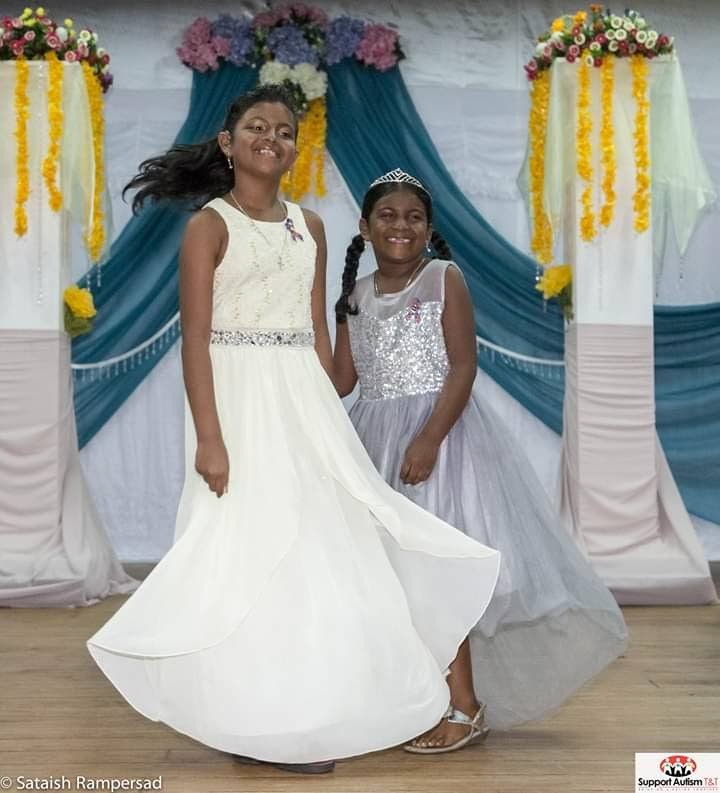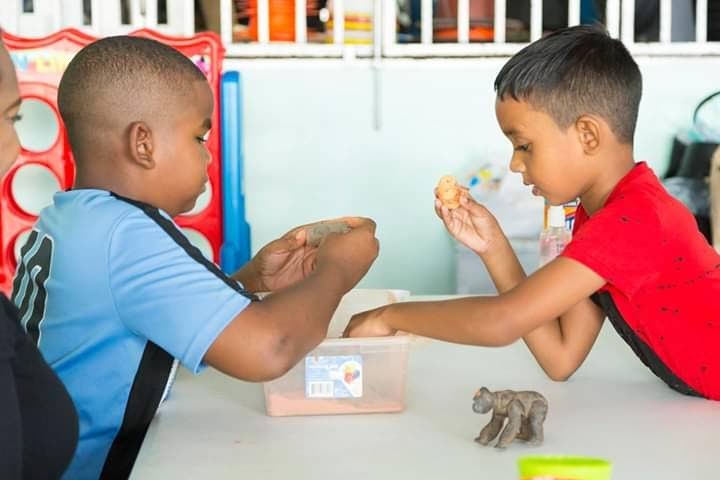The rights of a child with autism

DR RADICA MAHASE
LITTLE Brittany just celebrated her sixth birthday. She lives with her mum and her grandfather in a small wooden house in a rural area in south Trinidad. Her mum works very long hours at a popular fast food outlet so most of the time Brittany is at home with her grandfather. Her mum tried to get her into the primary school located nearby but the principal said they could not cater to Brittany’s special needs (she’s non-verbal). Her mum cannot afford to pay for a private school so Brittany is home every day. Recently, the family’s home was affected by flooding and they lost almost everything. Her mom got the special child’s grant from the Ministry of Social Development and Family Services but that was cut five months ago.
She was told that she did not qualify for any other grant as she is living with her father rent-free and he receives old age pension. Here is a little girl with no access to education, no assistance from the government, susceptible to natural disasters (flooding) and lacking the resources to live a fulfilling life.
Last week we celebrated International Children’s Day. Last month we celebrated International Day of the Girl Child. Both of these days of celebrations, designated by the United Nations (UN), focus on the provisions of opportunities for the development of children; the latter specifically focuses on the girl child. International Children’s Day focuses on building a better world for all children with the emphasis on children’s rights to an education, improving their welfare and to special care, education and training if suffering from a disability, amongst others. Children have a right to these things regardless of race, religion, social status, geographic location and disability.

Although TT signed and ratified the UN Convention on the Rights of the Child in 1989, we are seriously lacking in the provision of resources for all children. When we celebrate International Children’s Day and International Day of the Girl how do these translate into everyday living for little Brittany? How are the rights of the child, much less those with special needs, fulfilled in TT? How is the government of TT Tobago ensuring that children like Brittany are given opportunities for development?
The government might argue that there are legislations in place to protect all children in TT and the establishment of the Children’s Authority as the centre of these legislations is testimony to the fact that TT has acted on the UN’s mandate. To some extent this is true as the Children’s Authority has been doing excellent work regarding the protection of children. In the case of children like Brittany certainly more is required. What about her education and her access to all types of opportunities? In the bigger picture, Brittany needs a system that caters to her holistic development. She needs a special school which will help her develop her potential, verbal or not. She needs a social system in place that will help her mother supplement her income so that all Brittany’s economic needs are taken care of, that makes her mother economically independent, not living hand-to-mouth every month, not dependant on her father’s pension.
Most importantly, Brittany needs to know that there is a system in place which cares about her. This can only happen where all relevant ministries come together to provide services – education, social development, etc. For a child to develop his/her full potential there must be a certain level of collaboration by all stakeholders, a comprehensive system in place to ensure that all aspects of the child’s rights are protected, and a concerted effort at the national level, by the government to provide for the all-round development of the child.
This can be done when celebrations of International Children’s Day and International Day of the Girl Child extent beyond asking people to dress in a certain colour or formal functions with many speeches. At the end of the day, what are these types of celebrations really bringing to individuals like Brittany? When celebrations take the form of more active involvement within the community, in more tangible forms of assistance to the children who most need it, of more proactive engagement with the most vulnerable children in our country then we can really say that TT is living up to the UN Conventions on the Rights of the Child.
D. Radica Mahase
Founder/Director, Support Autism T&T


Comments
"The rights of a child with autism"